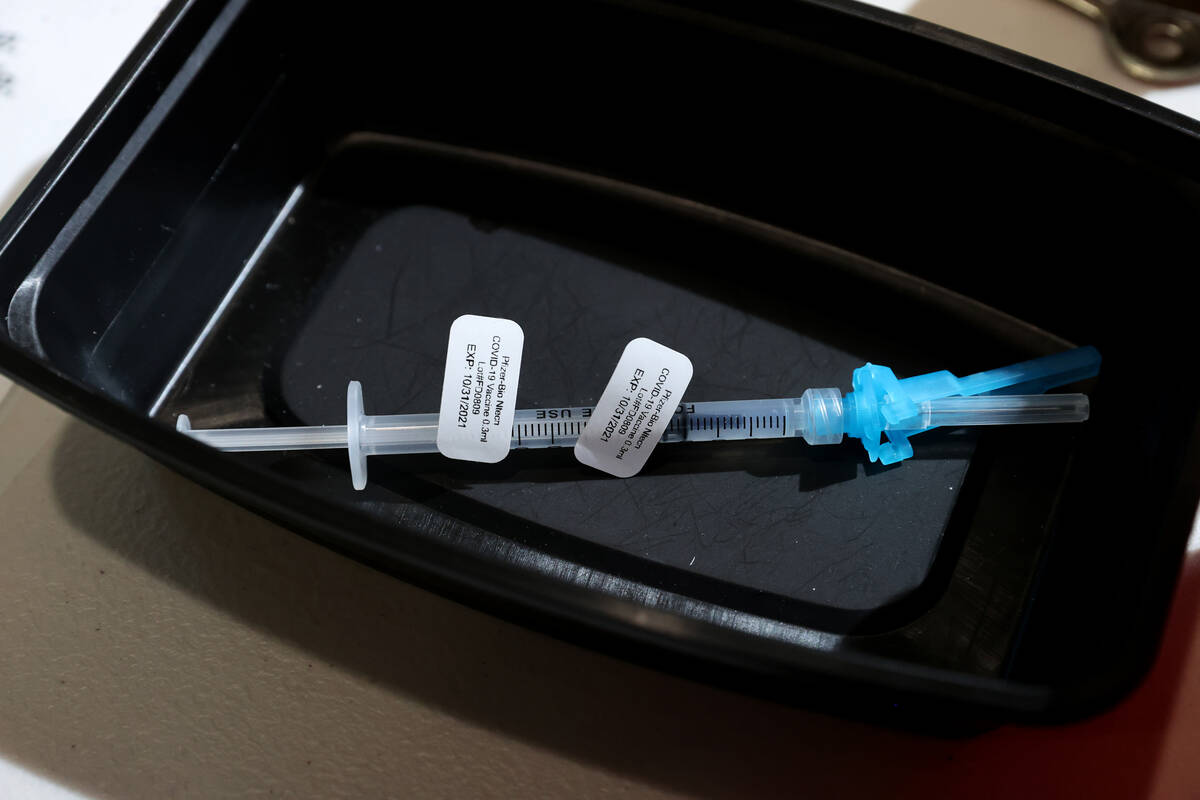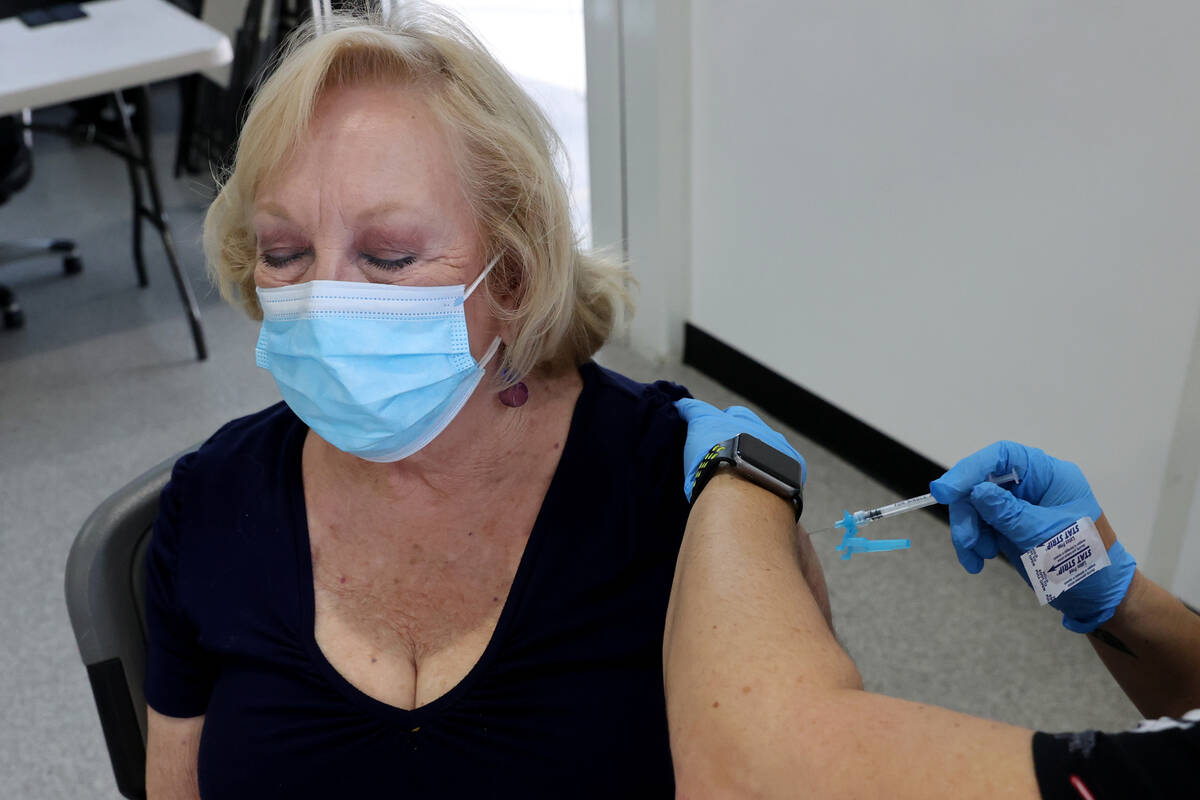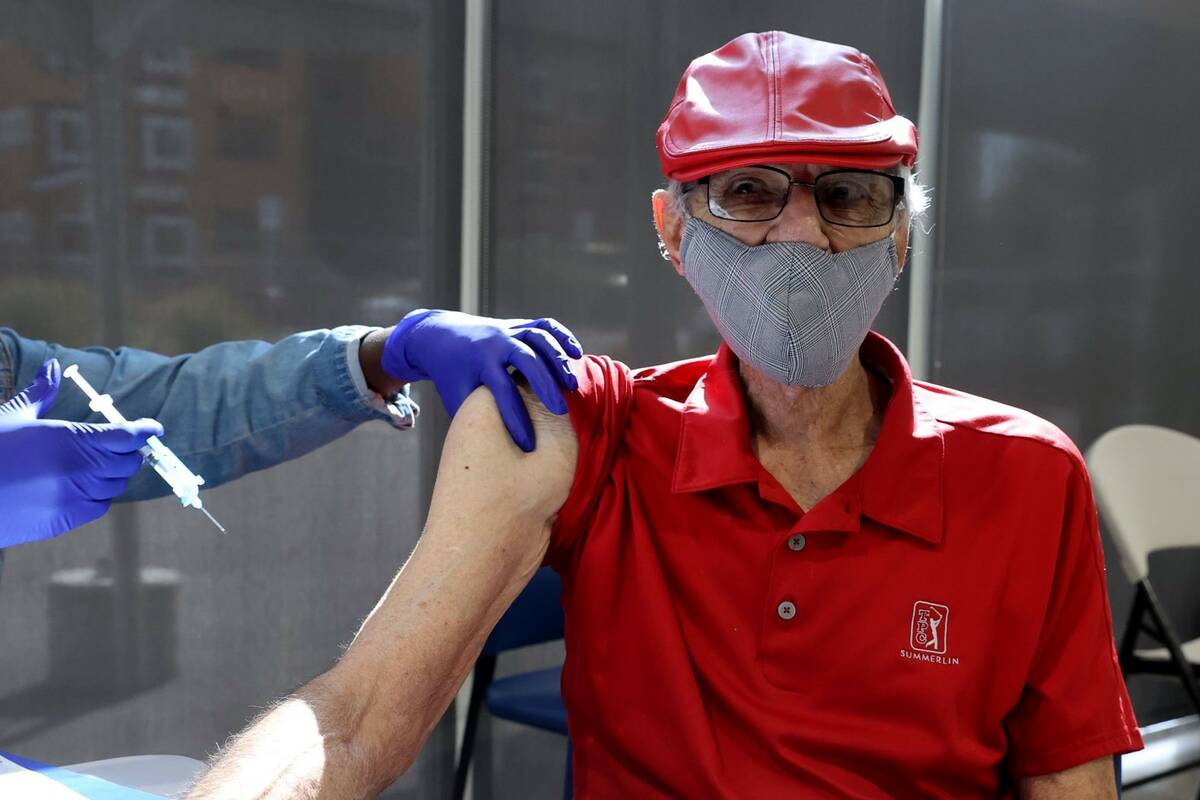Which workers are eligible for ‘booster’ shots of COVID-19 vaccine?
Nearly a week after federal regulators approved COVID-19 booster shots, many questions remain about which jobs qualify a young and healthy adult for an extra dose of vaccine.
The Centers for Disease Control and Prevention on Sept. 23 approved a booster of the Pfizer vaccine for those 65 and older, adults with underlying health conditions and those at increased risk of disease “because of occupational or institutional setting.”
Health officials initially said this last category included groups such as health care workers, teachers, day care staff and grocery workers. Despite some clarification this week from the CDC, the category remains open to interpretation.
It is “potentially extraordinarily broad,” said Dr. William Schaffner, a Vanderbilt University School of Medicine professor and a member of the CDC’s vaccine advisory panel. So broad, in fact, that one of his colleagues said the category might be interpreted to mean anyone who’s not a hermit.
“You could interpret it that literally,” said Schaffner, a non-voting member of the panel, which came out against booster eligibility based on occupation or industrial setting, a recommendation overruled by the CDC’s director.
Schaffner said he expects the interpretation of the CDC guidance to vary widely by state.
“I think there will be probably some state health departments who will be more directive,” he said. “Others will be more laissez -faire,” saying that they are still focused on getting first shots to the unvaccinated.
Few details from state
The state of Nevada has not provided detailed public guidance on eligible occupations, including in a technical bulletin provided to the state’s medical community on Tuesday. The bulletin said those who may get a shot, based on a personal assessment of individual benefits and risks, include those ages 18 to 64 at “increased risk of getting COVID-19 disease due to occupational or institutional exposure.”
People will be allowed to self-attest to their eligibility based on a health condition or occupational/institutional exposure, according to the bulletin, meaning they won’t be required to document eligibility.
Providing guidance on whether casino workers ought to get a booster is “exactly the kind of stuff that should come from the state, because we are such an industry town,” said Dr. Judith Ford, medical director of clinical quality for Intermountain Healthcare in Nevada.
“I absolutely think the state of Nevada is obliged to provide as best they can information to the public as quickly as they can. That’s been the one criticism — and this is just me speaking personally — I don’t think they’ve been fast enough,” said Ford, who praised the state’s efforts in making the vaccine widely available.
The complicated guidance surrounding booster shots has been confusing for patients and medical providers alike, she said.
“I wonder if we’re not clear about it, people lose faith in the state and the ability to roll out these vaccines efficiently, and according to the rules and fairness,” Ford said.
Shannon Litz, a spokeswoman for the Nevada Department of Health and Human Services, said in an email that the agency “has been working with partners and local health authorities to review and share the latest guidance related to Pfizer booster vaccination.”
Nevada Resort Association Vice President Dawn Christensen said the industry group was awaiting further information from the state on casino worker eligibility.
Spokeswoman Bethany Khan with the Culinary Union, which represents front-line casino workers, said its members had been “speaking with their doctors and following the guidance based on their personal underlying health conditions and their age range in terms of booster access.”
What the CDC says
On Monday, the CDC updated its website to specify eight occupational groups eligible for booster shots: first responders (health care workers; firefighters; police; congregate care staff); education staff (teachers; support staff; day care workers); food and agriculture workers; manufacturing workers; corrections workers; U.S. Postal Service workers; public transit workers; and grocery store workers.
“Strangely enough, casino workers didn’t come up actually, specifically, in the conversations at the ACIP,” said Schaffner, referring to the CDC’s Advisory Committee on Immunization Practices. “But they look to me a whole lot like grocery workers, which did come up,” in terms of risk of exposure to COVID-19.
During a media briefing Wednesday, Kevin Dick, district health officer of Washoe County in Northern Nevada, said that state officials indicated that occupational eligibility would apply to all front-line essential workers listed in Nevada’s so-called playbook for the initial rollout of the vaccine. That wide-ranging list was used earlier this year to determine priority for receiving early doses for the vaccine. Health care workers and first-responders were at front of the line, followed by teachers, government workers and, later, casino workers.
Dick said eligibility would extend to the workforce groups all at the same time.
Litz confirmed that the state would be using the frontline and essential workforce groups identified in the vaccination playbook to determine eligibility.
Complicating the CDC’s booster guidance was that it was divided into two classes: those who should get a booster and who may get a third shot.
The CDC recommended that everyone 65 and older who’d gotten two doses of Pfizer vaccine get a third, if it has been at least six months since their second shots. Federal regulators still must evaluate data on boosters for the Moderna and Johnson & Johnson (Janssen) vaccines before authorizing boosters for recipients.
The CDC also recommended Pfizer booster shots for those ages 50 to 64 with any of a long list of underlying conditions, from cancer to diabetes to chronic lung, liver or kidney disease.
The CDC further said that those 18 and older with any of the same underlying health conditions, as well as for those in certain occupational and institutional settings, may get a booster. The agency stopped short of recommending boosters for these groups until more data is evaluated.
Federal regulators previously had authorized a third shot of the Pfizer or Moderna vaccine for people with severely or moderately weakened immune systems, such as those with an organ transplant or HIV.
Boosters coming for all?
Before a broader recommendation for a booster, there needs to be more study of any link between vaccination and myocarditis, an inflammation of the heart found in some young males who had a COVID-19 infection, or, in rare instances, were vaccinated, said Brian Labus, an assistant professor at UNLV’s School of Public Health and a member of Gov. Steve Sisolak’s medical advisory team.
He expects Pfizer boosters to eventually be recommended for everyone who already has gotten two doses.
”We simply didn’t have the data yet to make that widespread recommendation,” he said. “But I won’t be surprised to see that coming down the road.”
Absent a clear recommendation, to boost or not to boost may come down to a judgment call for young and healthy individuals, he said.
“For example, if you’re on the casino floor around a lot of tourists, your risk is going to be different than if you are working in the accounting department,” he said. “So simply working in a casino doesn’t give a set amount of risk. It really varies by your exact job duties.”
Individuals will need to consider both their environmental risk due to their jobs and their health risk based on their own medical conditions.
“It’s a different calculation for every single person,” he said.
Contact Mary Hynes at mhynes@reviewjournal.com or 702-383-0336. Follow @MaryHynes1 on Twitter.
RELATED
COVID-19 booster shot campaign launches
COVID booster shots available at health district clinics













































